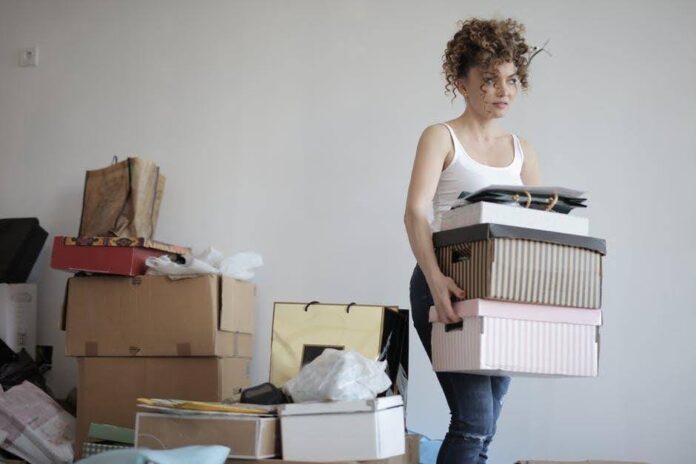Creating a home that feels organized and harmonious brings psychological benefits that go far beyond aesthetics. Our living environment influences our mood, stress levels, and well-being. A controlled space can evoke feelings of safety and comfort; chaos can result in anxiety and discontentment. When each item in a home has a designated place, you can easily find what you need and have better clarity in thought and action.
The process of decluttering can be a powerful exercise in mental discipline and create a sense of accomplishment. Read on to explore various aspects of how an organized home environment focuses on the impact of control and order on your mental well-being.
The Impact of Clutter on Mental Health
Clutter can affect mental health, which results in feelings of overwhelm and anxiety. When surrounded by disarray, you may find it challenging to focus or relax. Clutter triggers the brain’s stress response, making it harder to feel in control of daily tasks. People living in cluttered homes reported higher levels of distress and lower life satisfaction.
The chaos of disorganized spaces diverts attention and increases feelings of anxiety. Address clutter to restore a sense of calm and cultivate a more positive mindset. When the physical environment shifts towards order, mental clarity follows suit and builds better emotional well-being.
Look into Self-Storage Solutions
Self-storage solutions provide practical options for managing overflow and maintaining a sense of order. If you are from the area, look into Penrith self-storage units that store items you do not currently need and keep them safe. You will reduce clutter in your living space and cultivate a more organized environment. Utilizing self-storage lessens physical distractions in the home. When the focus shifts to only the essentials, you can create a space that promotes relaxation and productivity.
Having access to additional storage alleviates the nagging worry of letting go: it reassures you that you can retrieve necessary items if needed later. The added flexibility self-storage offers can empower you to make more confident decisions regarding your home environment.
The Role of Space Management
Create an effective space management for better tranquillity in your space. Furniture arrangement and decluttering can make all the difference in how a home feels. A well-structured living area looks appealing and allows inhabitants to move through their space seamlessly. You will find belongings easily, reduce frustration, and save time.
Personalizing spaces can improve feelings of ownership and control and further diminish stress. Utilizing storage solutions strategically can clear spaces without sacrificing aesthetic appeal. Nearly any home can benefit from optimizing available space that won’t overwhelm your senses.
Create Zones for Better Functionality and Flow
Design distinct zones within a home to achieve order and functionality. Zones cater to specific activities (work, relaxation, or socializing) so that the mental flow within your home aligns with daily routines. This structure promotes productivity and helps family members understand their roles within shared spaces.
When everyone knows where to find items or how to leave things organized, cooperation naturally increases. Using barriers like rugs or furniture arrangements can delineate spaces and maintain a cohesive look. Purposeful zoning brings in an element of tranquility so that you can engage in various activities. A harmonious flow contributes to a balanced life by supporting activities in an organized manner.
The Benefit of Minimalism
Minimalism has gained popularity as a lifestyle choice that emphasizes simplicity and intentionality in possession. Focusing on quality over quantity teaches you to appreciate what you have and minimize distractions caused by excessive belongings. A minimalist approach promotes mindfulness in consumption habits and evaluates your needs before acquiring new items. This shift can result in greater contentment for a more fulfilling relationship with your possessions.
Feelings of anxiety and guilt from excess can dissipate when you learn to prioritize what truly matters. Minimalism encourages you to declutter both physically and mentally and promotes better emotional clarity. Many find that their homes become places of peace and respite rather than burden and chaos.
The Emotional Benefits of a Clean and Organized Home
A clean, structured home offers psychological perks that are hard to overstate. The act of cleaning and organizing can be therapeutic to express feelings of control over your circumstances. Regularly address household management for better emotional resilience and reduced feelings of chaos and unpredictability. An organized environment improves productivity and reduces procrastination.
People report feeling calmer and more capable in spaces that promote cleanliness and order. The sense of responsibility and discipline gained through maintaining order may contribute positively to your self-esteem. Know that an organized home reflects a well-adjusted mind. You will be closer to achieving your full potential by removing physical and emotional barriers that hold you back.
A home that feels ordered and under control influences your well-being: it creates an environment conducive to relaxation, productivity, and emotional clarity. By minimizing clutter and embracing intentional living, you empower yourself to cultivate spaces that reflect your values and promote mental health.



